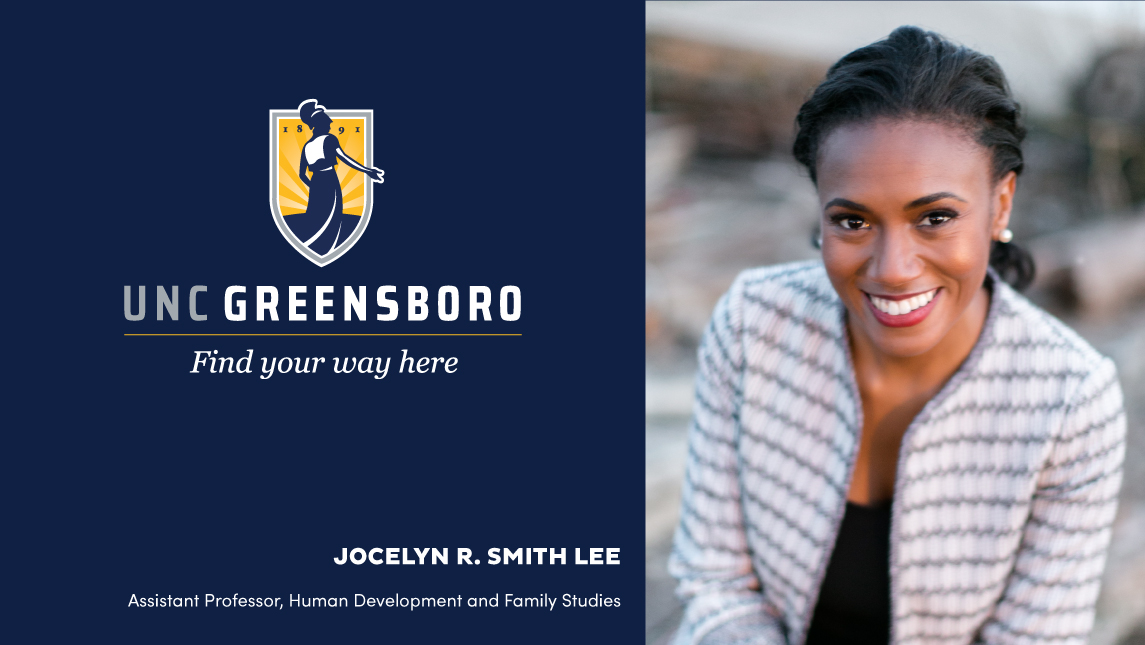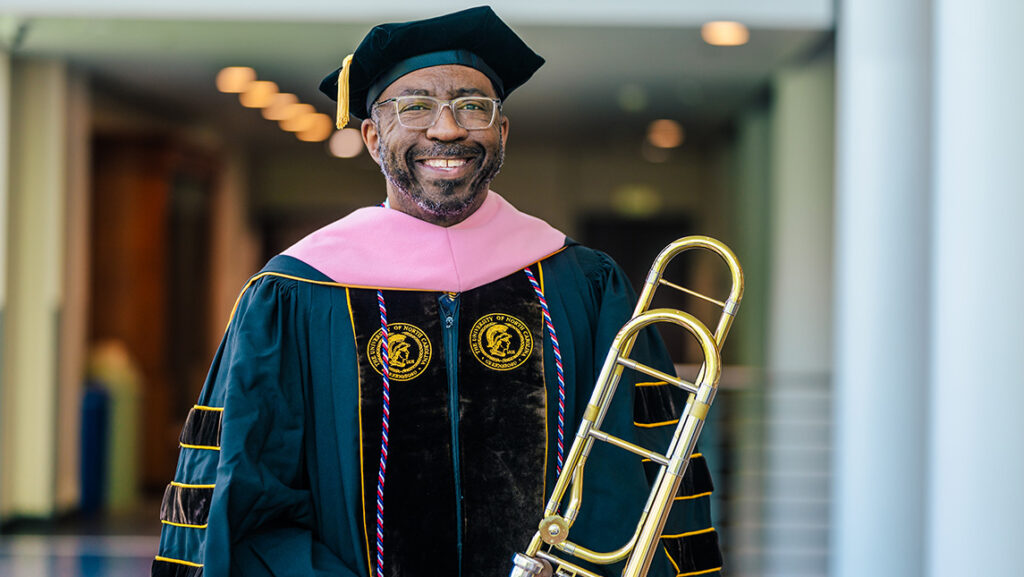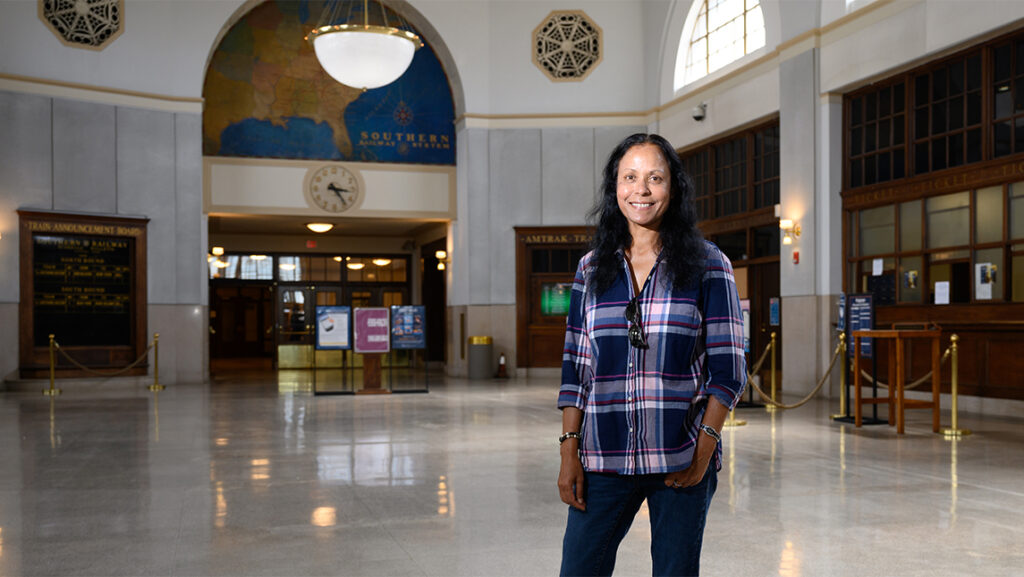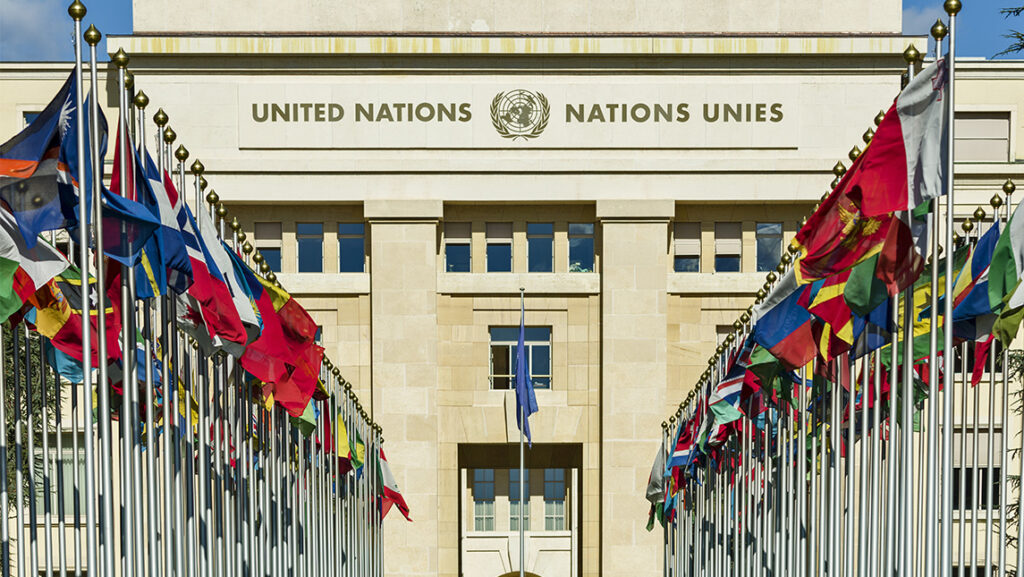
UNC Greensboro’s Dr. Jocelyn R. Smith Lee has been awarded a $100,000 grant from the Bill & Melinda Gates Foundation for her project “Disrupting Dehumanizing Narratives of Black Men in Poverty.”
Smith Lee is one of just 28 grantees across the nation to be selected as part of the Gates Foundation’s Voices for Economic Opportunity Grand Challenge. The purpose of the Grand Challenge, launched in September 2019, is to establish ways to offer alternatives to confusing, conflicting, and inaccurate accounts about what poverty is, why it happens, to whom it happens, and how to address it.
Smith Lee’s project aims to tell the stories of traumatic loss, resilience, and quests for economic mobility of young Black men in Baltimore, in order to recast them in the national consciousness as human beings deserving of dignity and investment rather than as social problems. The assistant professor of human development and family studies will partner with visual artist and educator Zun Lee, M.D., and the Historic East Baltimore Community Action Coalition.
“We congratulate Dr. Smith Lee on this prestigious award from the Gates Foundation,” said UNCG Chancellor Franklin D. Gilliam, Jr. “Solving societal challenges takes time. We know that partnerships founded in courage and a commitment to doing the right thing expedite progress toward positive change. We have seen this first-hand at UNCG in our work with our students and with the Gates Foundation as part of the Frontier Set, among other projects. It takes creative minds and innovative thinkers like Dr. Smith Lee to be a force for change, and to lead us toward a brighter future. We couldn’t be prouder of her.”
In the last decade, Smith Lee and her team have documented the unequal burdens of violence and grief faced by the Black community. Looking ahead, the team will recruit young men to take part in a Photovoice project and to complete ethnographic interviews about their life course experiences. In addition, they will employ machine learning to identify hidden barriers to their economic mobility. These approaches will be combined to produce dynamic local and digital exhibits that center the pain and promise of these survivors of violence. The goal is to engage citizens and leaders in transformative dialogue that affirms the humanity of young Black men and deepens awareness about root causes and barriers to their economic mobility.
Research suggests that Black families are disproportionately buffeted by death. Homicide, overwhelmingly as a result of gun violence, is the leading cause of death for Black youth ages 10-24, and it remains the leading cause of death for Black males ages 15-34. Although these statistics are well-documented and often weaponized to reinforce dehumanizing narratives, policies, and practices, the mental health consequences of the cumulative trauma and grief economically disadvantaged Black boys, men, and families experience often goes unseen and unaddressed. Research suggests this unequal burden, maintained by social determinants of health, may compromise the ability of Black boys, men, and families living in poverty to become upwardly mobile.
For Smith Lee, to be awarded this prestigious grant – at this particular moment in history – is significant.
“I’m thrilled to be selected as a Voices for Economic Opportunity Grand Challenge grantee,” she said. “This funding from the Bill & Melinda Gates Foundation will help to advance the mission and vision of my research lab, Centering Black Voices (CBV), to affirm humanity, prevent violence, and promote healing in the lives of Black boys, men, and families. The Grand Challenge grant is my first sponsored award at UNCG. Its timing and alignment with the spirit of my work are deeply meaningful.”
The Grant Challenge grantees were selected from 1,225 submissions made last fall and represent a broad cross-section of geographies, cultures, media, and scope of ideas. Grantees will gather over the next 18 months as a cohort to collaborate and learn from one another; receive access to research, coaching, and other technical support; and incubate their individual projects, with an eye toward production and distribution of prototypes by the fall of 2021.
Key partners on the Grant Challenge project have included the Bill & Melinda Gates Foundation, Robert Wood Johnson Foundation, James Irvine Foundation, W.K. Kellogg Foundation, Omidyar Network, Raikes Foundation, Winthrop Rockefeller Foundation, and the Schultz Family Foundation.
More information can be found at the Grand Challenges website.



